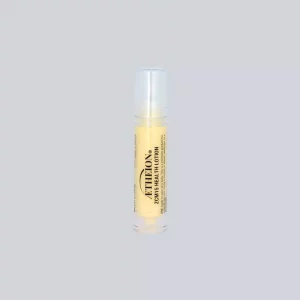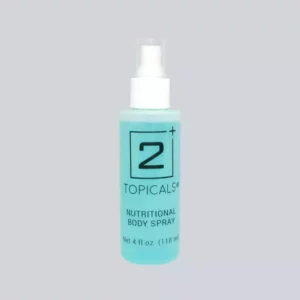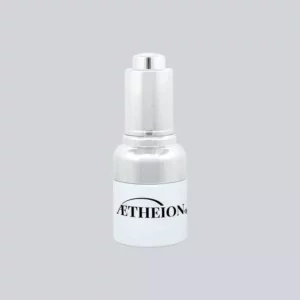How to Stop Peeling Sunburn: Expert Tips for Smoother, Healthier Skin
Table of Contents
Getting a sunburn is more than just discomfort—it can lead to peeling, leaving your skin dry, itchy, and sensitive. Sunburn peeling happens when the sun damages the outermost skin layers, causing them to shed. While peeling is a natural healing process, it can be minimized with proper care. This guide will help you understand how to stop peeling sunburn, prevent further damage, and support your skin's recovery.
Why Does Sunburn Cause Peeling?
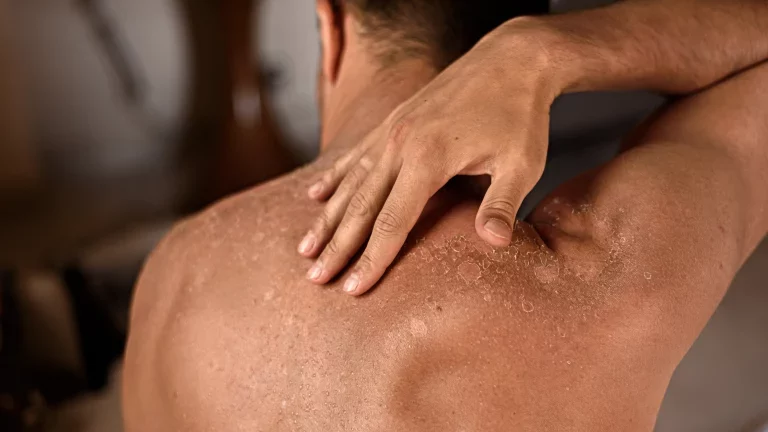
Sunburn peeling damages the outer layer of your skin, leading to cell death. Your body sheds these damaged cells through peeling to replace them with new, healthy ones. While peeling has begun for severe burns, early intervention can reduce its severity. Peeling skin from sunburn can be uncomfortable, but taking the right steps can help prevent excessive peeling and support faster healing.
How to Stop Peeling Sunburn Skin: 7 Effective Tips
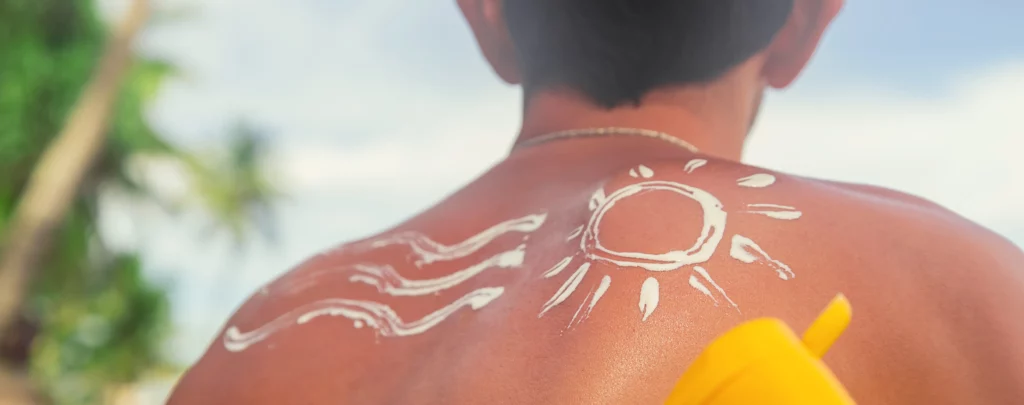
1. Cool Down Your Skin Immediately
Cooling the affected area can help slow down damage and reduce inflammation.
What You Can Do:
- Take a cool shower or apply a cool compress to your sunburned skin.
- Avoid hot water, which can worsen irritation.
- A cool compress with anti-inflammatory cream can help soothe redness and irritation.
2. Moisturize Generously
Moisturizing is key to retaining hydration and preventing your peeling skin from becoming flaky.
Tips for Effective Moisturizing:
- Use a fragrance-free, non-oil-based moisturizer with aloe vera or ceramides.
- Apply moisturizer while your skin is still damp to lock in hydration.
- Use a product with anti-inflammatory properties to relieve discomfort.
- Reapply frequently, especially on tight or peeling areas.
3. Hydrate from Within
Staying hydrated supports your skin’s ability to heal and reduces peeling severity.
How Much to Drink:
- Consume at least 8-10 glasses of water daily.
- Eat hydrating foods such as watermelon, cucumbers, and citrus fruits.
- Proper hydration helps stop peeling when the burn is still fresh.
4. Avoid Picking or Peeling the Skin
Picking at peeling skin can lead to scarring and infections.
What to Do Instead:
- Allow your skin to peel naturally.
- Gently remove flaking skin while showering using a soft washcloth.
- Pat your skin dry—do not rub aggressively.
5. Use Soothing Skincare Ingredients
Certain ingredients help relieve sunburn symptoms and protect your skin from further damage.
Look for Products Containing:
- Aloe Vera: Cools and soothes inflammation.
- Zinc Oxide: Protects and repairs skin.
- Calendula Extract: Reduces irritation and promotes healing.
- OTC Pain Reliever: Helps ease discomfort associated with severe sunburn peeling.
AETHEION® ZC5 After Sun is enriched with soothing antioxidants to moisturize and calm sun-exposed skin, reducing the risk of peeling.
6. Wear Loose, Breathable Clothing
Tight clothing can cause friction and worsen peeling. Wearing protective clothing can also help prevent further sun damage.
Best Clothing Choices:
- Lightweight, breathable fabrics such as cotton.
- Sun-protective clothing with a high ultraviolet protection factor (UPF).
7. Avoid Exfoliating Too Soon
Exfoliation should only be done when peeling has completely stopped.
When to Exfoliate:
- Wait until redness and sensitivity subside.
- Use a gentle exfoliant and avoid harsh scrubbing.
How to Prevent Peeling After Sunburn
The best way to prevent peeling is to take immediate action after sun exposure.
1. Apply Aloe Vera Immediately
Aloe vera can prevent your sunburn peeling from worsening by hydrating and cooling the skin.
2. Use an After-Sun Lotion
After-sun products containing antioxidants and vitamins like Vitamin E can protect your skin from further damage.
3. Avoid Further Sun Exposure
Once sunburned, your skin is highly sensitive. Stay indoors or wear sun-protective clothing and sunscreen when going outside.
4. Take Cool Oatmeal Baths
Oatmeal has anti-inflammatory properties that calm irritated skin and help reduce peeling.
5. Maintain Proper Hydration and Nutrition
Consuming hydrating foods and fluids helps your skin recover from sun damage.
What to Avoid When Dealing with Sunburn
To protect your sunburned skin and reduce peeling, avoid these common mistakes:
- Hot Showers: They dehydrate your skin and exacerbate peeling.
- Harsh Soaps: Use gentle cleansers to avoid irritation.
- Alcohol-Based Products: These strip moisture from your skin, making peeling worse.
- Popping Blisters: If your sunburn results in blisters, leave them intact to prevent infection.
- Oil-Based Creams: These can trap heat in the skin and worsen inflammation.
- Petroleum-Based Products: Avoid petroleum-based products, as they can block the skin's ability to heal properly.
Why Sunburn Prevention Is Essential
Preventing sunburn is always better than treating it afterward. Protecting your skin from UV radiation from the sun reduces the risk of peeling, premature aging, and skin cancer.
Sun Protection Tips:
- Apply a broad-spectrum sunscreen with SPF 30 or higher and reapply every two hours.
- Wear a wide-brimmed hat and sunglasses for additional protection.
- Avoid peak sun hours (10 AM - 4 PM) when UV rays are strongest.
- Use sun-protective clothing to shield your skin.
How AETHEION® Products Can Help
AETHEION® skincare solutions are designed to soothe and protect sunburned skin:
- AETHEION® ZC5 After Sun – A potent sunburn relief lotion packed with antioxidants to hydrate and reduce redness. Use after sun exposure for optimal skin repair.
- AETHEION® ZCM30 Synergistic Lotion – A vitamin-rich formula that treats, conditions, and protects the skin with essential antioxidants.
FAQs About Sunburn Peeling
Q: How long does it take for sunburn to stop peeling? A: Peeling usually stops when the skin has fully regenerated, which takes about seven days. Hydration and moisturizing help accelerate healing.
Q: Can moisturizing prevent peeling? A: While it won’t stop peeling entirely, consistent moisturizing helps retain your skin’s protective barrier, reducing flaking.
Q: When should I apply aloe vera? A: Immediately after sun exposure to hydrate and calm inflamed skin.
Conclusion: Care for Your Skin After Sunburn
Knowing how to stop peeling sunburn can make a significant difference in your skin’s healing process. By acting quickly, keeping your skin hydrated, and using the right products, you can minimize peeling and promote smoother, healthier skin.
Ready to protect and heal your skin? Explore AETHEION®’s skincare solutions for an easy and effective way to achieve long-term skin health.




